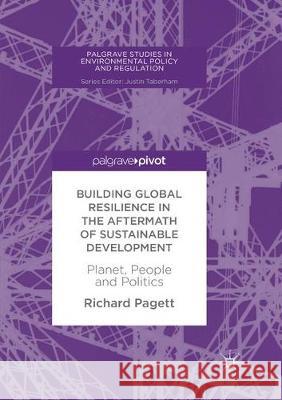Building Global Resilience in the Aftermath of Sustainable Development: Planet, People and Politics » książka
topmenu
Building Global Resilience in the Aftermath of Sustainable Development: Planet, People and Politics
ISBN-13: 9783319872421 / Angielski / Miękka / 2018 / 167 str.
Kategorie:
Kategorie BISAC:
Wydawca:
Palgrave MacMillan
Seria wydawnicza:
Język:
Angielski
ISBN-13:
9783319872421
Rok wydania:
2018
Wydanie:
Softcover Repri
Ilość stron:
167
Oprawa:
Miękka
Wolumenów:
01











